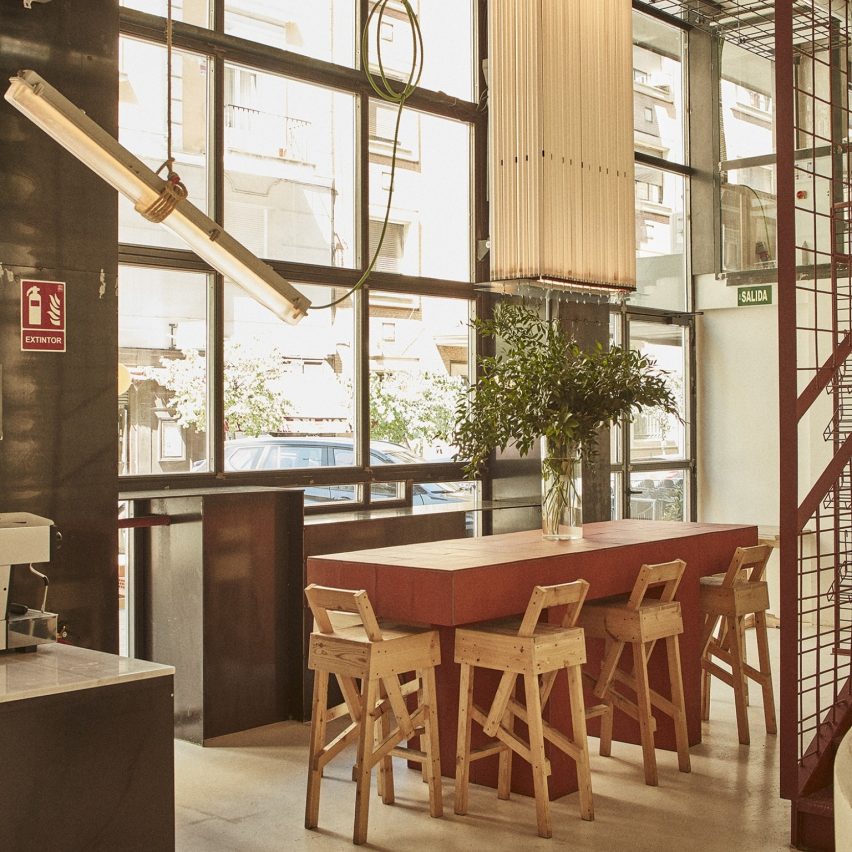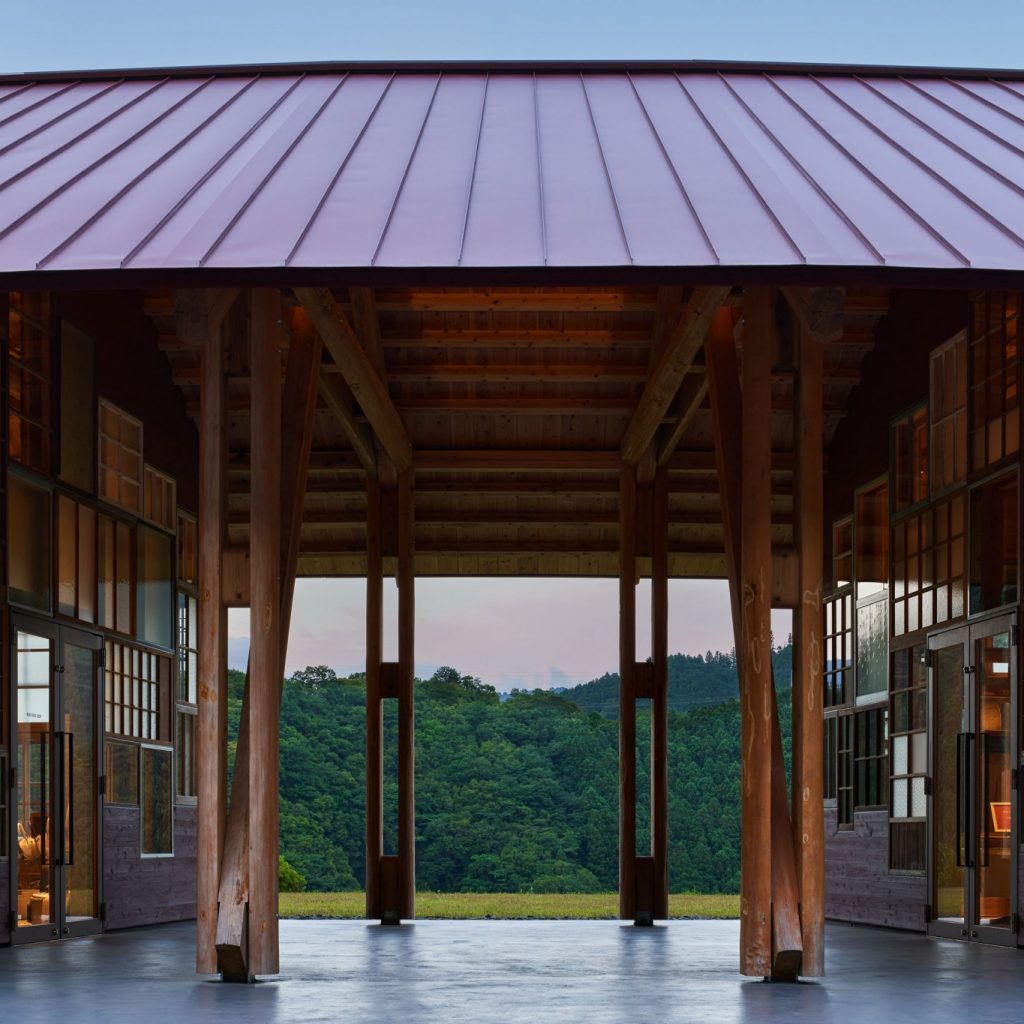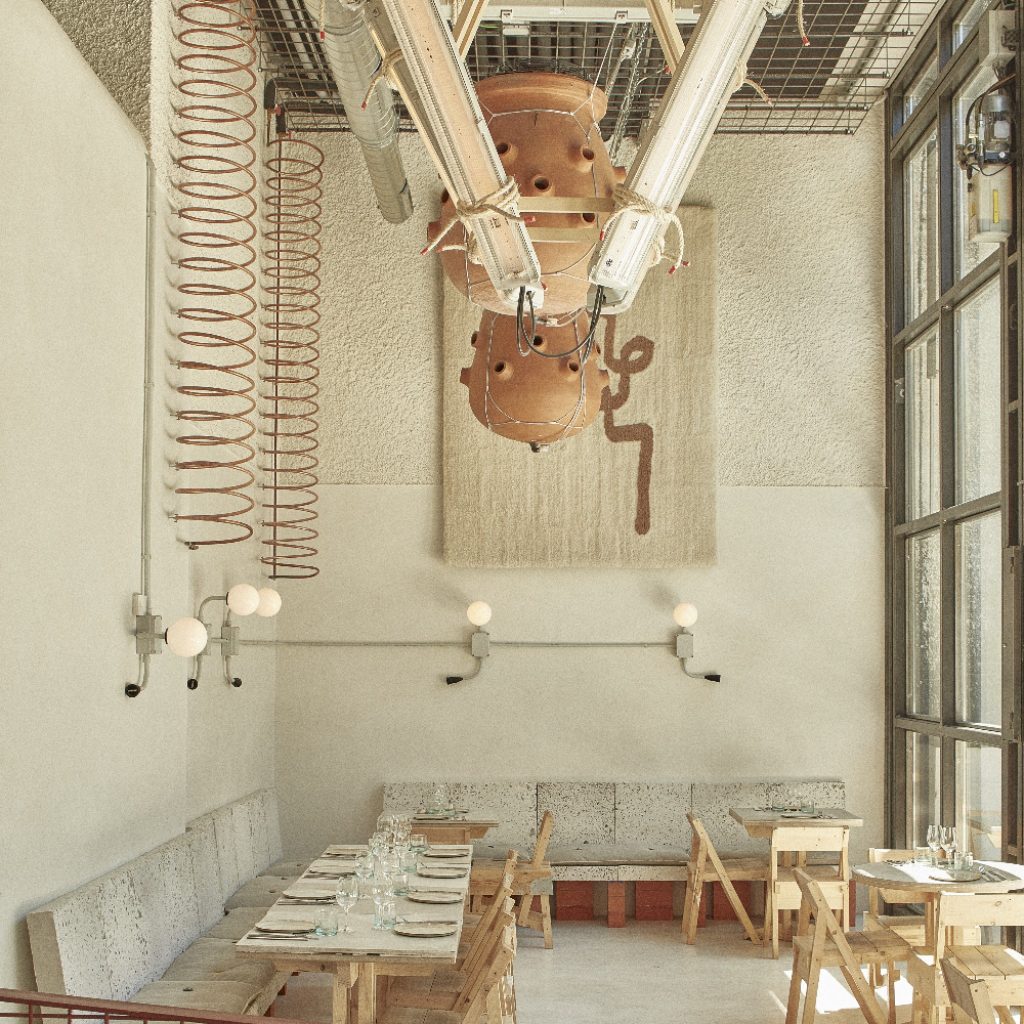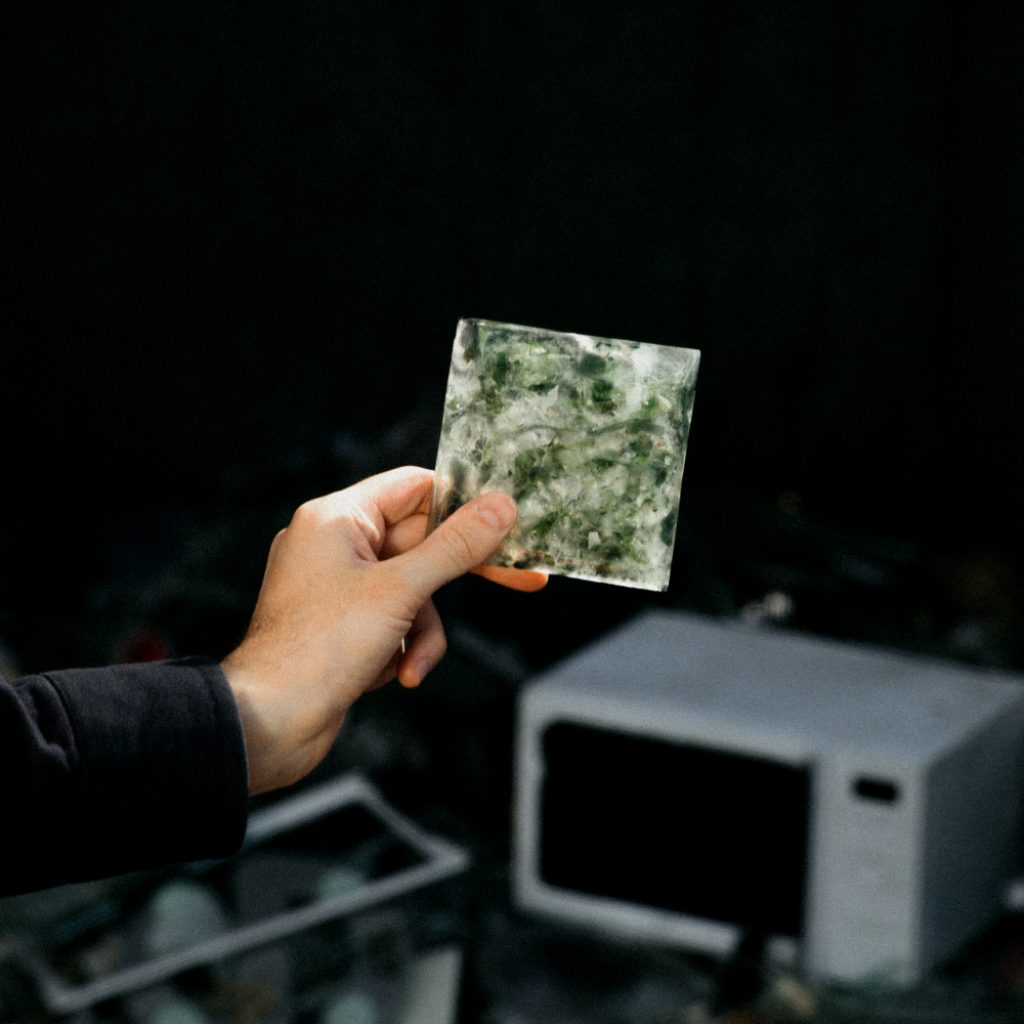
The three winning sustainability projects for Dezeen Awards 2021 have been revealed as a recycling centre that features 700 repurposed windows, a restaurant made from upcycled junk and a collection of tiles made of glass from discarded microwaves.
The sustainability categories were newly introduced this year to recognise the efforts of architects and designers who are putting sustainability at the forefront of their practice.
While all projects entered into Dezeen Awards are judged on how beneficial they are to people and the planet, the sustainability awards aim to highlight projects that focus on sustainability above all else, at every level of the design process.
There were 357 entries for the sustainability categories at this year's Dezeen Awards, which are sponsored by Dodds & Shute. Of these, 15 were shortlisted by a panel of sustainability experts. After this, the sustainability master jury met virtually to ratify the winners.
The master jury for the sustainability awards includes Nick Shute of Dodds & Shute, environmental design writer and speaker Katie Treggiden, Seetal Solanki of Ma-tt-er, interior designer Simon Hamilton, Lay Koon Tan of Nature Squared and Taiwanese architect Arthur Huang
The sustainability categories are the latest accolades to be announced this week. The winners of the architecture categories were announced on Monday, the winning interior projects were announced on Tuesday and the design category winners were revealed on Wednesday. This afternoon, we'll be announcing the winners of the brand new media categories while the winning studios will be revealed tomorrow.
To find out about Dezeen Awards 2021, subscribe to our newsletter.
See the winning sustainability projects on the Dezeen Awards website or read on below:

Sustainable building of the year:
Kamikatsu Zero Waste Center by Hiroshi Nakamura & NAP
The town of Kamikatsu is the first place in Japan to pass a zero-waste declaration. The inhabitants have devised a clever system for separating and recycling waste, meaning that all their waste is recycled or reused rather than being incinerated.
The Kamikatsu Zero Waste Centre houses this system as well as bringing together local residents to share ideas and values, providing a space for education, research and communication as well as recycling.
The building itself is made almost entirely from discarded materials. The structure is made from timber offcuts and the 700 windows that make up the intriguing facade were donated by the local community.
The master jury said: "The Kamikatsu Zero Waste Center is a holistic project, which is having a significant impact on its local community and one in which sustainability has been considered from every perspective. The centre is acknowledging and celebrating society – it shows the community coming together and contributing. Beyond just a green and beautifully constructed architecture edifice, it is actually a decentralised upcycling factory, education, community centre cafe, retailer and a hotel. This is the green architecture we desperately need."

Sustainable interior of the year:
Mo de Movimiento by Lucas Muñoz
Mo de Movimiento is a new restaurant in a reclaimed space in Madrid designed by conceptual and experimental designer Lucas Muñoz.
The majority of the interior and elements within the space are made from reclaimed materials, including recycled junk and construction rubble from the renovation.
Munoz aimed to create a space that has a small impact on the environment, but a large positive one on the surrounding society.
Aiming to avoid unnecessary decoration, all elements of the restaurant serve a purpose. The hanging terracotta pots function as an adiabatic cooling system and the restaurant’s water is heated using excess heat from the pizza ovens.
The master jury said: "The restaurant is very beautiful, upcycled yet aesthetic. The interior is profound and whimsical. You can tell they had a lot of fun when designing this space. This interior is also honest, raw and fun. It does so many things and has an inventiveness to it. Creativity, fun, cheerfulness permeates through every detail. The use of recycled material sparks design innovation at every level."

Sustainable design of the year:
Common Sands Forite tiles by Studio Plastique, Snøhetta and Fornace Brioni
The Common Sands Forite Tile collection showcases the untapped potential and unique qualities of e-waste glass from discarded microwaves.
The glass from used electronic devices is a material almost never recycled. This is challenged by the new collaborative project by Oslo-based architecture and design studio Snøhetta, Brussels-based Studio Plastique and Italian tile manufacturer Fornace Brioni.
Every tile is unique. The collaborating studios wanted to celebrate the defects in e-waste glass that usually means it cannot be recycled. These flaws became a key feature of the design, with a different composition and array of colours for each tile.
The master jury said: "Studio Plastique has taken an underexplored waste stream and found a clever solution with wide-ranging applications in these glass tiles. The designers have upcycled unwanted glass into one of the kind palettes for a new generation of lifecycle to come."
The post Dezeen Awards 2021 sustainability category winners revealed appeared first on Dezeen.
from Dezeen https://ift.tt/3DROC0Z
No comments:
Post a Comment